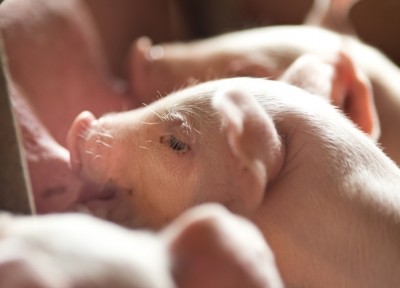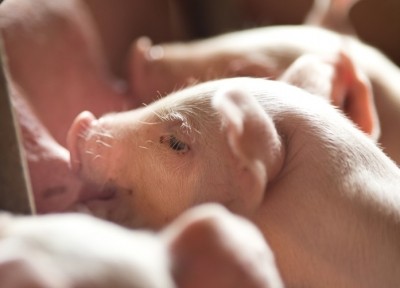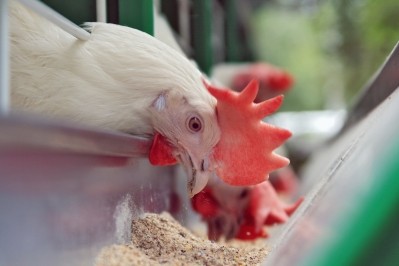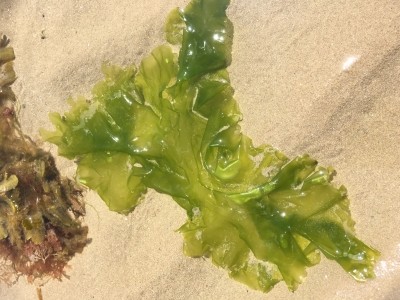Marine brown algae sourced feed additive said to offer promise for broiler productivity
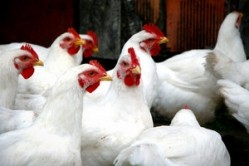
Writing in the journal Poultry Science, the scientists reported that supplementation of broiler diets with purified polymannuronate (PM) from marine brown algae can stimulate the activity of beneficial cecal microbiota and result in increased production of lactic acid and volatile fatty acids (VFA).
“The production of lactic acid and VFA can lower the intestinal pH to create an environment unsuitable for harmful bacteria,” said the researchers, who are based at either the Ocean University of China or China Agricultural University.
The team also reported that adding PM to the broiler chickens' diets resulted in a significantly increased average daily weight gain (ADG) and improved feed conversion (FCR) compared with the control treatment.
Polymannuronate constitute part of an alginate - a linear polymer of polysaccharides isolated from marine brown algae, said the authors.
They said low molecular weight alginates have been proposed as potentially useful prebiotics (Wang et al., 2006; O'Sullivan et al., 2010) that can cause the competitive exclusion of pathogenic microbes and selective colonization by beneficial microbes (Biggs et al., 2007).
And the immunologic potential of polymannuronate has been reported in several in vivo animal models, added the Chinese academics.
But highly purified low molecular weight PM has not previously been used as a feed additive in poultry diets, they said, adding that their goal was to explore its potential as a novel feed additive and determine its influence on performance, antioxidant capacity, immune status, intestinal microflora, and volatile fatty acid concentrations in broilers.
The study
The authors said the PM used in their trial was produced by acid hydrolysis and pH fractionation of alginate obtained from brown algae such as Laminaria hyperborean, Macrocystis pyrifera, Lessonia nigrescens, and Ascophyllum nodosum) with some modifications.
In a 42 day trial, they said 540 one day old Arbor Acres male broilers were randomly divided into treatments with six replicates of 18 chicks and fed a corn and soybean meal based diet supplemented with various amounts of the marine algae derived additive.
The scientists concluded that from day one to day 42, the ADG of broilers fed 1, 2, 3, or 4g/kg of PM was increased by 2.58, 4.33, 4.20, and 3.47%, respectively.
Compared with the control group, the feed conversion ratio was better with increasing dietary levels of PM, they added.
However, there was no improvement on average daily feed intake in the birds fed PM, they said.
They observed that the antioxidant capacity of broiler chickens fed PM containing diets was improved along with their humoral immunity, while the study indicated that with PM supplementation, cecal E. coli was significantly decreased and lactic acid bacteria increased.
“The increase in cecal lactic acid bacteria and the reduction in cecal E. coli populations may be attributed to the prebiotic properties of the polymannuronate that is selectively fermented by beneficial microbiota,” they continued.
Other findings
The authors also reported on a study conducted by Yan et al. (2011), which found that supplementation with 0.04% sodium alginate oligosaccharide resulted in significantly higher body weight following a challenge with Salmonella Enteritidis.
However, the authors noted that Ei-Deek et al., (1987) found inclusion of seaweed in broiler finisher diets had no significant effects on chicken growth, feed intake, and FCR, while supplementing broilers’ diets with Norwegian kelp meal did not improve feed conversion, according to Wisman and Howes’ findings (1963).
“The difference in results may be attributed to factors such as amount supplemented, the purity of the seaweed extract, and differences in seaweed species. Because natural seaweed fibers are predominantly high molecular weight polymers, they pass through the gut too rapidly to allow bacterial utilization.
The polymannuronate used in this study was mainly composed of low molecular weight polymers, hence its utilization efficiency would likely be higher than natural seaweed fibers,” said the Chinese team.
Source: Poultry Science
Published online ahead of print: doi: 10.3382/ps/pev006
Title: Effects of polymannuronate on performance, antioxidant capacity, immune status, cecal microflora, and volatile fatty acids in broiler chickens
Authors: Zhu W, Li D, Wang J, Wu H, Xia X, Bi W, Guan H, Zhang L.
